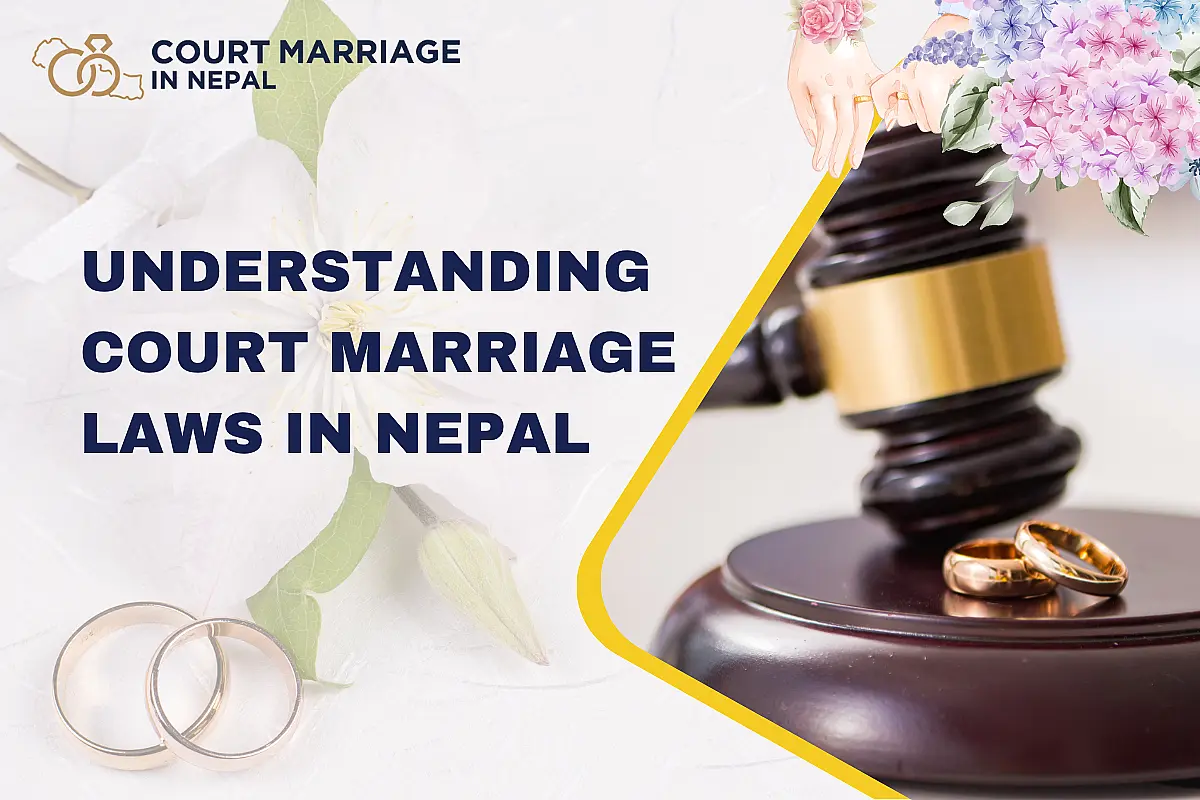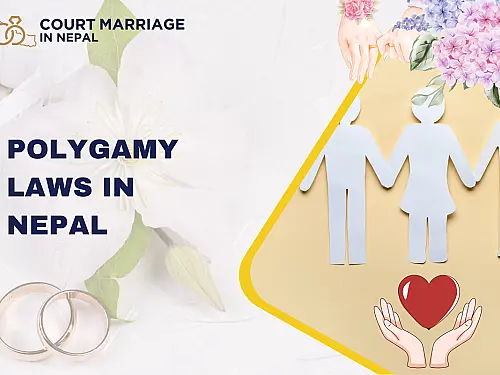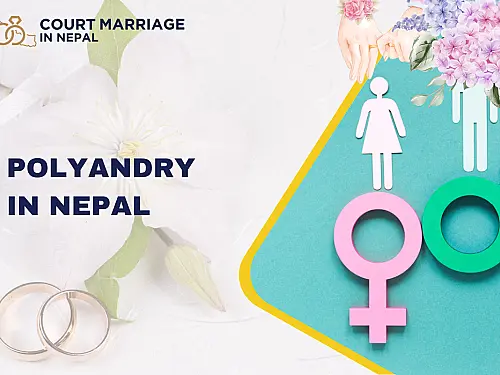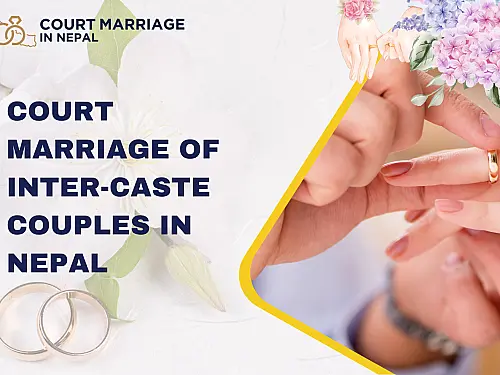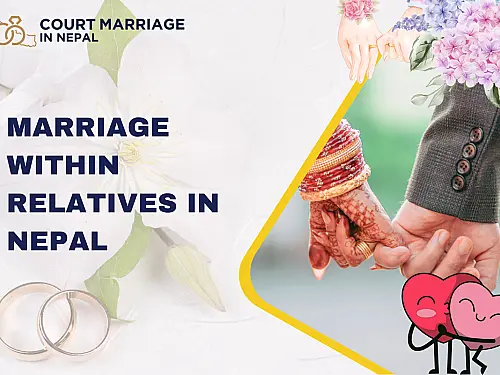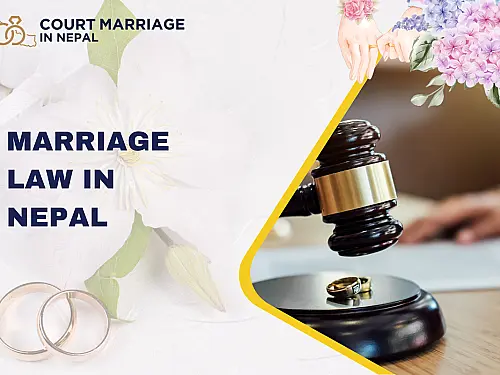Table of Contents
Introduction
Marriage is a significant milestone in life, and in Nepal, couples have the option of solemnizing their union through court marriage—a legal, straightforward, and hassle-free process. Unlike traditional weddings that involve religious rituals and social customs, court marriage in Nepal is a civil process conducted before a government authority. It provides legal recognition to the marriage and ensures that both partners have equal rights and responsibilities under the law.
Understanding marriage laws in Nepal is crucial for both Nepalese and foreign nationals who wish to get married legally in the country. This article explores the legal framework, eligibility criteria, required documents, and the step-by-step process for marriage registration in Nepal.
Whether you are a Nepalese citizen or a foreigner looking for foreign court marriage in Nepal, this guide will help you navigate the legal aspects of marriage and ensure compliance with Nepal Marriage Law.
Legal Framework of Court Marriage in Nepal
The Nepali Marriage Act and Its Provisions
Court marriages in Nepal are governed by the National Civil Code 2017 (Muluki Civil Code 2074), which sets the legal provisions for marriage, including eligibility, documentation, and registration procedures. Key aspects of Nepal Marriage Law include:
- Minimum Age Requirement: Both the bride and groom must be at least 20 years old.
- Mutual Consent: Marriage must be based on free will and mutual consent of both parties.
- No Existing Marriage: A person cannot enter a second marriage unless permitted by law.
- Prohibited Relationships: Marriage is prohibited between close relatives as per Section 70 of the Civil Code.
For official marriage recognition, couples must complete their marriage registration in Nepal at the designated government office.
Who Can Apply for Court Marriage in Nepal?
Nepalese Citizens
Court marriage is open to any Nepali citizen who meets the legal requirements. It is an ideal option for couples who:
- Want a simple and cost-effective alternative to a traditional wedding.
- Belong to different religions or castes and prefer a legally binding marriage without social restrictions.
- Need a legally valid marriage certificate for legal and immigration purposes.
Foreign Nationals and Inter-National Marriages
Foreigners can also apply for foreign marriage in Nepal, provided they meet the legal conditions. Foreign court marriage in Nepal is particularly beneficial for:
- Couples where one or both partners are foreign nationals.
- Tourists or expatriates who want a legally recognized marriage in Nepal.
- Individuals seeking marriage certification for visa, residency, or legal purposes.
To facilitate the process, the Marriage Registration Bureau in Nepal assists both Nepali and foreign applicants in completing the necessary formalities.
For more details on foreign marriage registration, visit Foreign Marriage Registration in Nepal.
Step-by-Step Process of Court Marriage in Nepal
1. Preparation and Document Collection
Before filing for court marriage in Nepal, both partners must gather the required documents, including:
- Citizenship Certificate (for Nepalese citizens)
- Valid Passport & Visa (for foreign nationals)
- Single Status Certificate (to prove that neither party is currently married)
- Proof of Residence
- Four Passport-Sized Photos
- Consent Letter from Parents (if applicants are close to the legal marriage age)
2. Submission of Application at the Marriage Registration Bureau
Once all documents are ready, couples must visit the Marriage Registration Bureau in Nepal, where they will:
- Submit the application form along with supporting documents.
- Verify the authenticity of their records.
- Pay the required government fees.
The bureau may conduct an interview to ensure that both parties are marrying of their own free will.
3. Verification and Publication of Marriage Notice
The authorities will review the application and publish a public notice to invite any objections. If no objections arise within 15 days, the marriage can proceed.
4. Final Approval and Court Marriage Ceremony
On the designated date, the couple must:
- Appear before the District Court along with two witnesses.
- Take the marriage oath and sign the marriage certificate.
- Receive the official marriage registration certificate.
For more information on marriage registration in Nepal, visit Marriage Registration Services.
Advantages of Court Marriage in Nepal
Court marriage offers several benefits, including:
- Legal Security: Provides official recognition and protects spouses’ legal rights.
- Time and Cost Efficiency: Avoids expensive traditional ceremonies.
- Interfaith and Intercaste Marriages: Ensures legal recognition without religious or societal restrictions.
- Easier Immigration Processing: Helps with visa, residency, and international documentation.
Marriage Registration Bureau in Nepal: Your Legal Support
The Marriage Registration Bureau in Nepal plays a crucial role in processing and verifying marriage applications. It ensures compliance with Nepalese marriage laws and provides assistance for both domestic and foreign marriages.
For professional assistance with court marriage in Nepal, visit Court Marriage Nepal.
Conclusion
Understanding court marriage laws in Nepal is essential for anyone planning to legally tie the knot in the country. Whether you are a Nepali citizen or a foreigner, knowing the legal process, eligibility criteria, and documentation requirements can help make your marriage registration smooth and hassle-free.
For more details, expert guidance, and reliable court marriage services, explore Court Marriage Nepal and About Us. Ensure that your union is legally recognized and enjoy a secure, lawfully bound marriage in Nepal.
At Court Marriage In Nepal, a registered law firm operating as Court Marriage In Nepal Pvt. Ltd., we specialize exclusively in Court Marriage Nepal. As the first law firm in Nepal dedicated to court marriage services, we assist both Nepali citizens and foreign nationals with the court marriage registration process in Nepal, including complete legal support for court marriage registration for foreign citizens in Nepal. As a trusted marriage firm in Nepal and a licensed law firm in Nepal, we ensure a smooth, lawful, and stress-free experience. Contact us today for confidential assistance with court marriage registration in Nepal.

